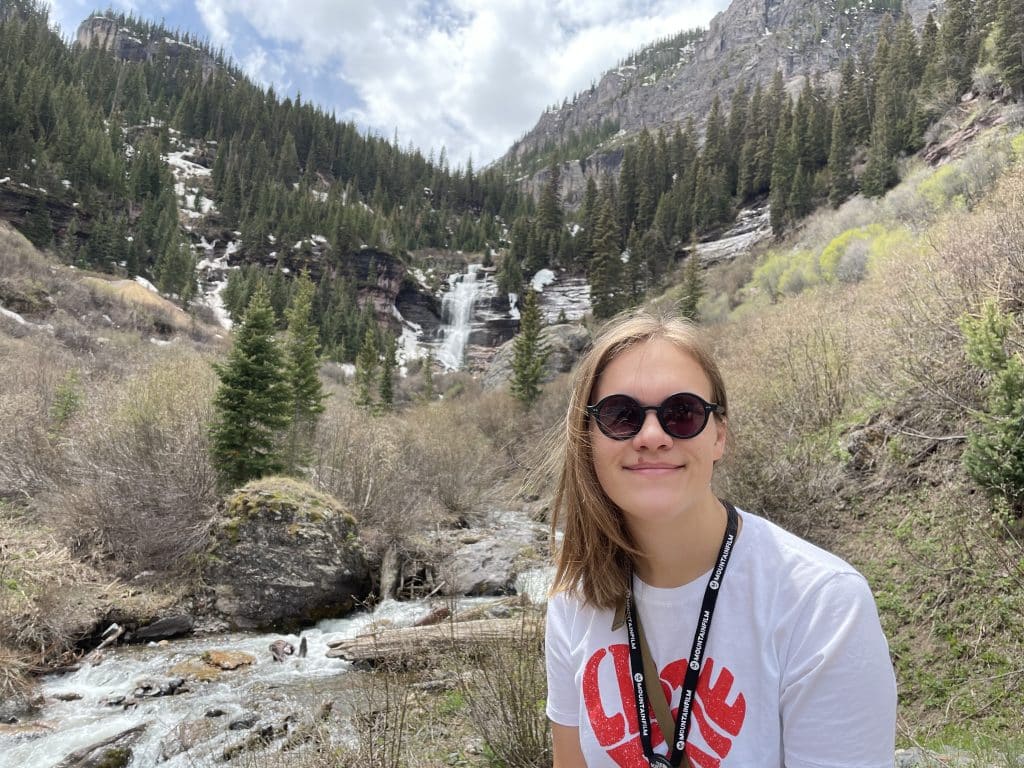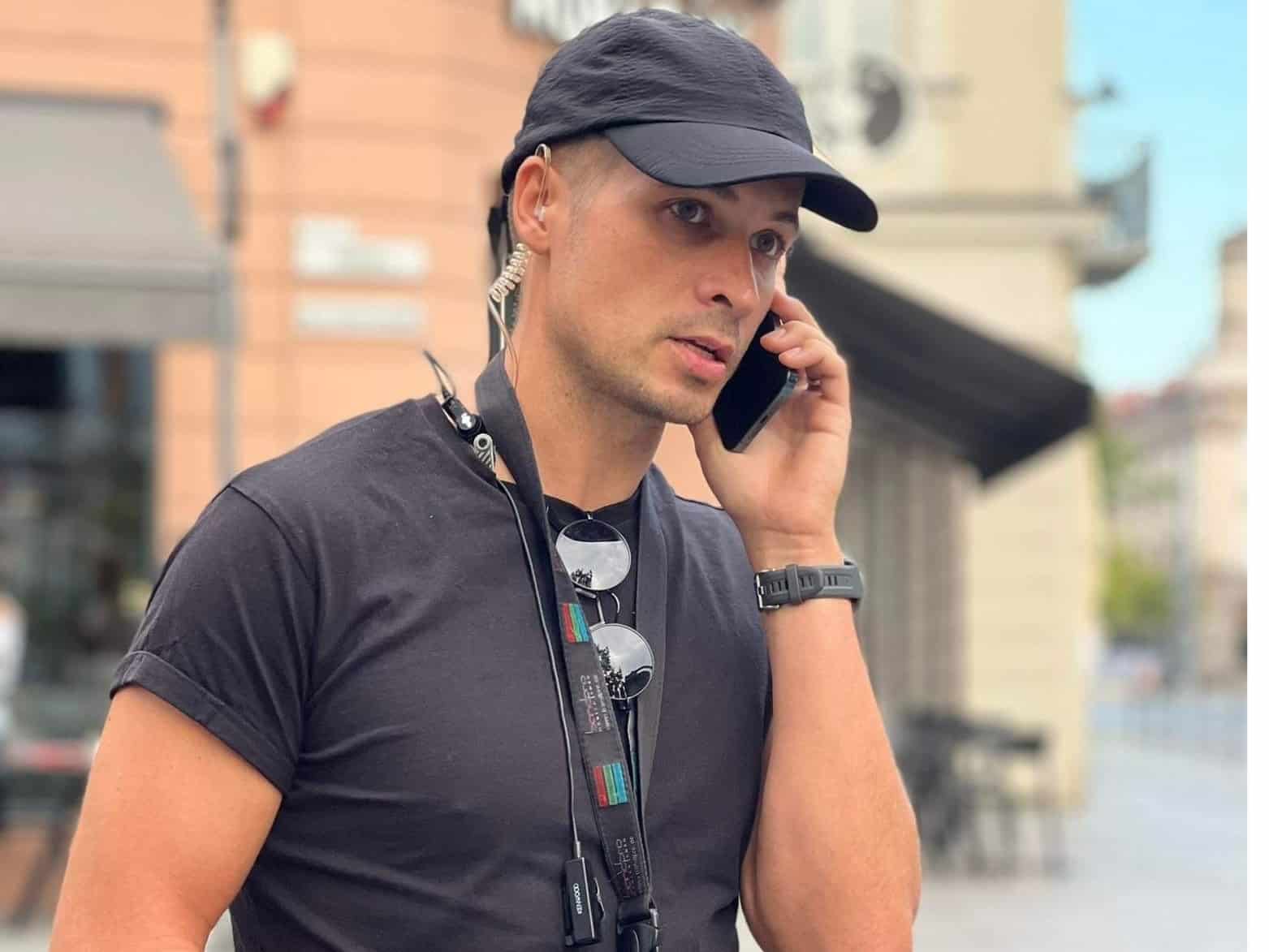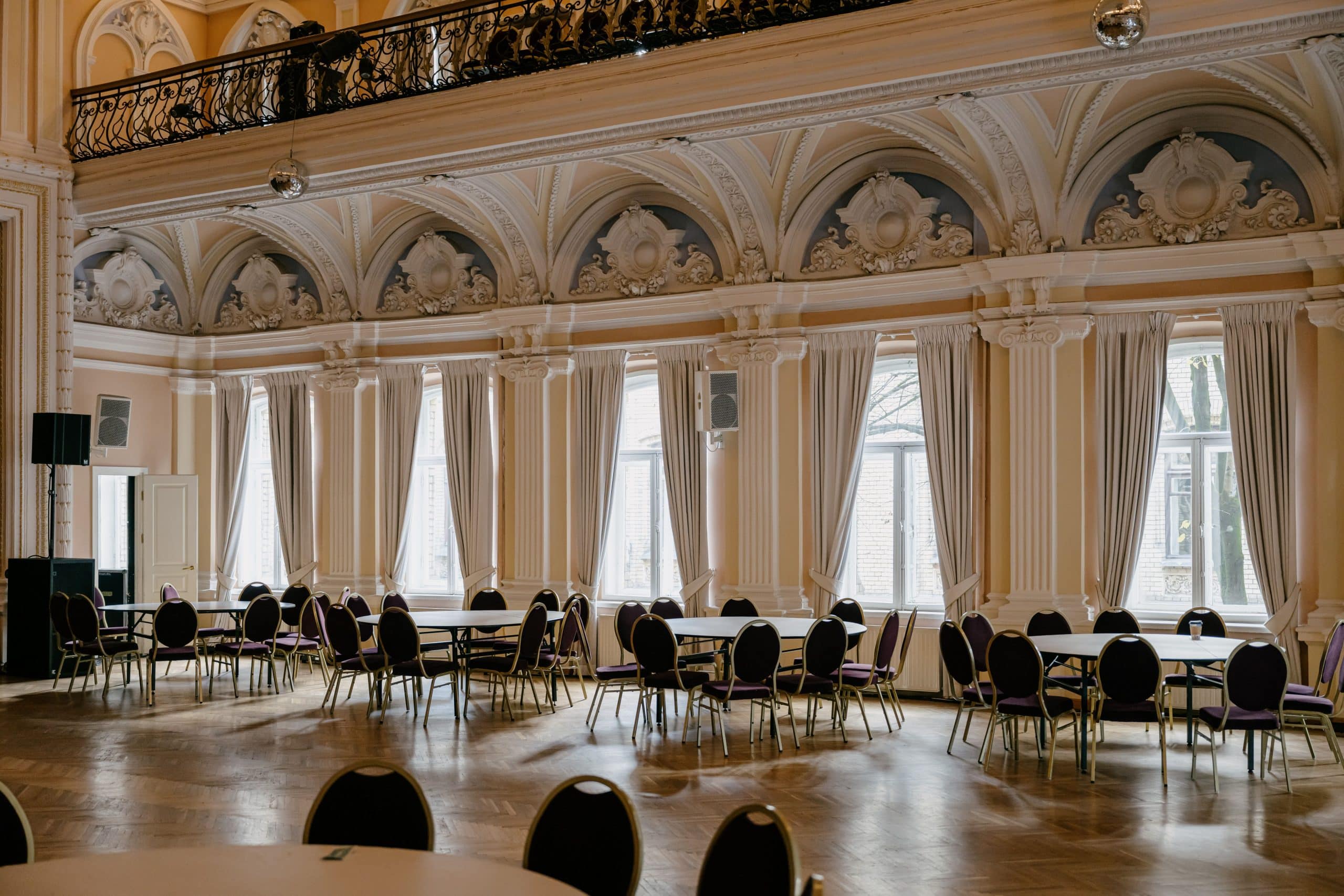Gabrielė Urbonaitė is a screenwriter, film director, and editing expert. She is currently working on two projects: a personal documentary and a debut full-length film, the shooting of which is scheduled to begin at the end of spring. The director graduated in the USA, studied in Boston and New York, but later chose to continue her creative path in the Lithuanian film industry. Last year, Urbonaitė was nominated for the “Silver Crane” national film awards for the best editing director’s work in the film “Remember to Blink.”
Gabriele, what was the beginning of your cinematic career?
My path to the film industry began at the “Skalvija” film academy when I was 14 years old. This activity really drew me into the cinema world. I met like-minded people who became my friends. We delved deep into cinema together and made various films. I decided to continue this journey, so I went to the United States to study film directing: I began in Boston and then moved to New York. However, I kept coming back to Lithuania to make short films, and currently I work on both feature films and documentaries.
What made you decide to study abroad? Would you recommend choosing film studies in a foreign country?
In my school graduation year, the Lithunian Music and Theater Academy did not have a film director’s course. I wanted to study in France, however, there was an opportunity to go to the United States because my parents were working there at the time. This also broadened my horizons, as there were more opportunities in the US. My coursemates were people of different nationalities, and we were taught by film industry professionals from various countries around the world. However, after graduation, the students tend to return to their home countries, so you can no longer keep working with them. I wouldn’t say that studying abroad is always the best choice, because I think that the film academy in Lithuania is extremely strong. The most important thing is to know what you are aiming for, how and with whom you want to work.

In your opinion, what is the difference between the Lithuanian and US film industries?
I guess that there are a lot of things – primarily, the scale and the funding options. In contrast to the USA, in Lithuania we have national funding, which makes it easier to get financial support, for a debut film, for example. The US is dominated by private foundations, and of course everyone knows Hollywood, but the US film industry is large and diverse, with a lot of interesting independent cinema production on both the East and West coasts. It is actually difficult to assess the film industries of these two countries as they are very different. I am happy to be a part of the Lithuanian film industry, because it is small, yet growing. It is easier to feel the sense of community here.
What was your experience abroad when you were still a student?
I liked studying abroad because I had to face various challenges, so I learned a lot. During my master’s degree, I concentrated on screenwriting, and I realized that I not only had a knack for writing, but that I loved it. On the other hand, it was difficult because New York is a big city, the studios are busy, and I work better at a slower pace. My class was assembled after Donald Trump was elected President of the USA. Interestingly, even among my classmates, there was a sense of division due to different views and an increased sensitivity to sociopolitical topics.
Patience, which is required in all filmmaking processes. Of course, sensitivity, because you need to see the differences between takes and feel certain nuances. It is very important to be able to tell a story, to be able to create a certain emotion, because montage is all about storytelling through images.
How and when did you decide to learn film editing? What is your experience in this field?
My mother taught me editing when I was still attending the “Skalvija” film academy. I started editing more seriously during my studies because I worked with documentaries; that’s how I started to earn money. Of course, in the US you have to work your way up, so I started as an editing assistant. The further I got, the more creative tasks I received, and eventually I started editing scenes. I have worked on three documentaries in the USA, and when I returned to Lithuania, I was already editing my first feature film.
I like to find certain solutions in the editing—to actually tell the story, maybe even rewrite the script for the better, if necessary. It is important to get a certain emotion out of the images, so the entire process, in my opinion, is creative. In terms of challenges, the job is sedentary, you spend 8 hours of work in front of a screen. This daily routine can last four months if a feature-length film is being edited, and if it is a documentary, the work process takes even longer. Other challenges may arise if the material does not meet expectations. Then it’s up to you to look for a certain way out, try to squeeze something out, but this challenge is more creative, and I like it. I would think the biggest challenge is getting started, no matter what the job is. But then, once you start, you get into it, work becomes fun.

Do you always manage to fulfill the director’s vision? What is the most difficult part of this process?
It depends on the director; it is important to find a connection with him or her, to catch his/her vision. It is not difficult for me to delve into another person and understand their wishes, because I know how to distance myself from the fact that I myself direct films. I have worked with excellent Lithuanian directors who clearly knew what they wanted. Together with the director, we try everything until we reach the final version of the montage. However, first I install the original version myself, and then we look at what needs to be improved.
What personal qualities do you need to develop in order to work as a film editor?
Patience, which is required in all filmmaking processes. Of course, sensitivity, because you need to see the differences between takes and feel certain nuances. It is very important to be able to tell a story, to be able to create a certain emotion, because montage is all about storytelling through images.



